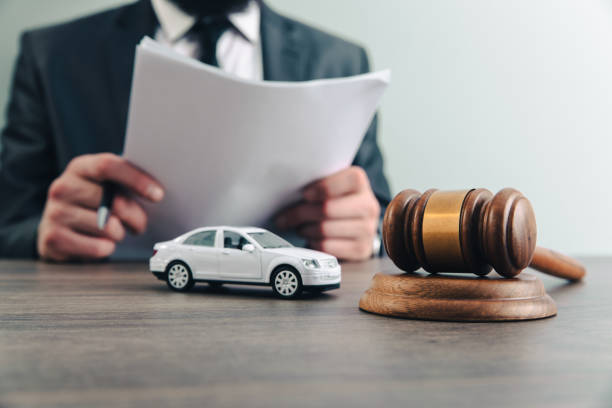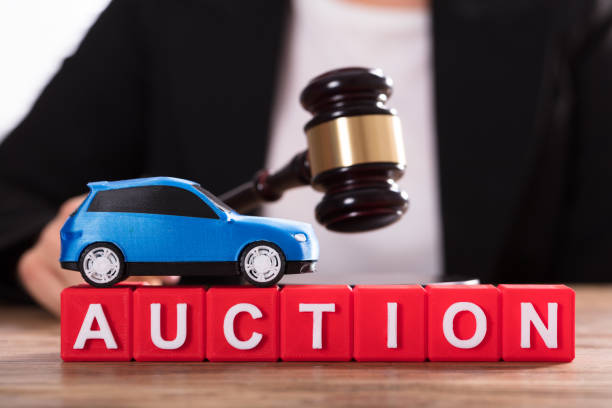Buying a car at an auction can be an exciting and rewarding experience. Whether you’re searching for a deal on a used car or a specific vehicle model, auctions provide a unique opportunity to purchase a car at a lower price. However, once you’ve successfully won your bid, there are important steps you must take to ensure that the car is properly registered, insured, and maintained. This guide walks you through the essential steps you need to take after purchasing a car from an auction, including tips and traps to avoid, vehicle maintenance, and the importance of reliable car transport services.
Registering Your Auction Car: Vehicle Registration Steps
After purchasing your car at auction, the first task you should tackle is the vehicle registration. This is necessary to legally drive your car on public roads and ensures you have the proper documentation.
DMV Registration for Cars
To complete the registration process, you’ll need to visit your DMV (Department of Motor Vehicles) or an equivalent agency. Each state has its own rules, so it’s important to check the specific vehicle registration steps in your area. Typically, here’s what you’ll need to do:
- Gather Required Documents: Bring your auction car paperwork such as the bill of sale, auction purchase receipt, title of the car, and proof of identity. If the car has a lien, additional documents may be needed.
- Pay Registration Fees: Most states charge registration fees based on factors like the car’s weight, age, and type. Check with your local DMV or auction house for exact fees.
- Title Transfer: Ensure the vehicle title transfer is completed so the car is legally in your name. This process typically involves submitting the signed title to the DMV.
Hidden Fees and Buyer’s Premiums at Car Auctions
One important thing to keep in mind is the potential hidden fees and buyer’s premiums at car auctions. Many auction houses charge additional fees, sometimes a percentage of the final sale price, in addition to the listed auction price. These can significantly increase the total cost of the vehicle. Be sure to review the auction house’s terms carefully before placing your bid.
Getting Insurance Coverage for Your Auction Car
Another critical step after purchasing a car from an auction is securing auto insurance. It’s a legal requirement to have auto insurance for auction cars, and it protects you in the event of accidents or damage.
Auction Car Insurance Options
When it comes to auction car insurance, you’ll want to choose the right policy for your needs. The two most common types of coverage are:
- Liability Coverage for Vehicles: This type of insurance covers damages or injuries you cause to others while driving. It’s the minimum coverage required by law in most states.
- Comprehensive Car Insurance: If you’re looking for broader protection, consider comprehensive car insurance. This policy covers both accidents and damages to your own car, including theft, vandalism, and natural disasters.
Before purchasing, it’s helpful to do an auto insurance comparison to find the best rates and coverage options for your auction car. Ensure the policy includes auto transport insurance if you’re shipping your car to a different location.
Clean and Detail Your Auction Car
One of the first things you’ll want to do after purchasing an auction car is give it a thorough cleaning. Many auction cars come with dirt, grime, and even stains from being in storage. Giving it a fresh start not only improves the car’s appearance but also helps you inspect the vehicle better.
Exterior Car Wash Tips
Start by washing the car’s exterior to remove any dirt or debris. Pay special attention to the wheels and undercarriage, as these areas can accumulate more dirt. Here are some tips:
- Use a gentle car wash soap to avoid scratching the paint.
- Rinse thoroughly to remove all soap residues.
- Dry with a microfiber towel to prevent water spots.
Waxing a Car
Once the car is clean, applying wax is a great way to protect the paint and add a glossy finish. Wax helps to create a barrier against the elements and preserves the paint job.
Interior Car Cleaning Tips
The interior of the car may also need a deep clean, especially if it was previously owned. Consider car detailing services if you want a professional job, or tackle it yourself by:
- Vacuuming the carpets and seats.
- Wiping down the dashboard, steering wheel, and other surfaces with a microfiber cloth.
- Cleaning the windows both inside and outside for a clearer view.
Perform Routine Maintenance on Your Auction Car

After purchasing a used car at an auction, it’s important to give it a thorough vehicle maintenance checkup. While auction cars can offer great deals, they often come with wear and tear that you might not notice during the bidding process. Regular maintenance helps to keep your car running smoothly and prevent costly repairs down the road.
Tire Inspection for Auction Cars
Check the tire pressure and look for any signs of wear, such as bald spots or cracks. If the tires are worn out, replace them promptly to ensure your safety. Inspect the tire tread and check for any punctures or leaks.
Fluid Check for Used Cars
Check all essential fluids, including:
- Engine oil: It’s a good idea to change the oil soon after purchase, especially if the auction car hasn’t had an oil change recently.
- Brake fluid: Ensure the fluid levels are within the recommended range. Low brake fluid can lead to braking issues.
- Transmission fluid: Check for any signs of leaks and ensure it’s at the proper level.
Oil Change for Auction Vehicles
Don’t wait to change the oil after buying a car at auction. It’s a simple but crucial step in keeping your engine in good working condition. Consult the owner’s manual for the recommended oil type and change intervals.
Locate the Owner’s Manual
The car owner’s manual provides valuable information about your auction vehicle, including maintenance schedules, recommended fluids, and troubleshooting tips. If the manual wasn’t included in the purchase, you can often find a digital version online or order a replacement from the manufacturer. The manual also explains the car’s systems and features, which can be especially useful for first-time auction buyers.
Test Drive Your Auction Car
Before hitting the road, it’s essential to take the car for a test drive. Even if the car passed inspection, a test drive can reveal potential issues that weren’t apparent during the inspection process.
Car Engine Inspection
During the test drive, listen for any unusual sounds from the car engine. Pay attention to how the engine idles, accelerates, and handles. If you notice any knocking sounds or vibrations, it could indicate an underlying problem.
Steering and Brake Test Drive
Make sure the car’s steering feels responsive and free of any unusual noises or tightness. Similarly, test the brakes to ensure they function smoothly and stop the car efficiently. A test drive will give you a sense of how the car feels on the road and help you identify any mechanical issues before you finalize the purchase.
Inspecting Used Auction Cars: Tips for Better Buying Decisions
Before you even bid, it’s crucial to inspect the auction cars thoroughly. Here are some important auction car inspection tips:
- Check the vehicle’s history: Look for reports on any accidents or title issues, such as a salvage title.
- Look for rust or frame damage: Pay attention to the car’s frame and undercarriage. Rust can indicate poor maintenance and might lead to structural issues.
- Test all electronics: Ensure that the windows, lights, air conditioning, and infotainment systems are working properly.
Reliable Car Transport Services After the Auction
Once you’ve bought your auction car, you may need to arrange transport, especially if you’re buying from an online car auction or a distant location. Here’s what you should know about car shipping after auction:
Long-Distance Car Transport
If you’re transporting the car across long distances, enclosed car shipping services offer extra protection against the elements, keeping your vehicle safe from weather or road debris. You can use an auto transport calculator to estimate costs based on your car’s size, weight, and delivery distance.
State-to-State Car Shipping
For those buying at state-to-state auctions, look into reputable auto transport companies that specialize in long-distance or interstate auto shipping. Always check for customer reviews and confirm that the company has proper auto transport insurance in case of damage during transit.
Conclusion
Buying a car at auction can be an excellent way to find a great deal, but the work doesn’t stop after you win the bid. From registering the car with the DMV to ensuring you have auto insurance and performing routine vehicle maintenance, each step is essential to a smooth transition into car ownership.
By following these steps, including cleaning, inspecting, and testing your auction vehicle, you’ll avoid common pitfalls and ensure that your new car serves you well for years to come. Plus, knowing how to transport your car safely and understanding the potential fees involved in the car auction process will help you stay prepared for any situation that may arise.
Also Read More Article : Tire Pressure Monitoring System
